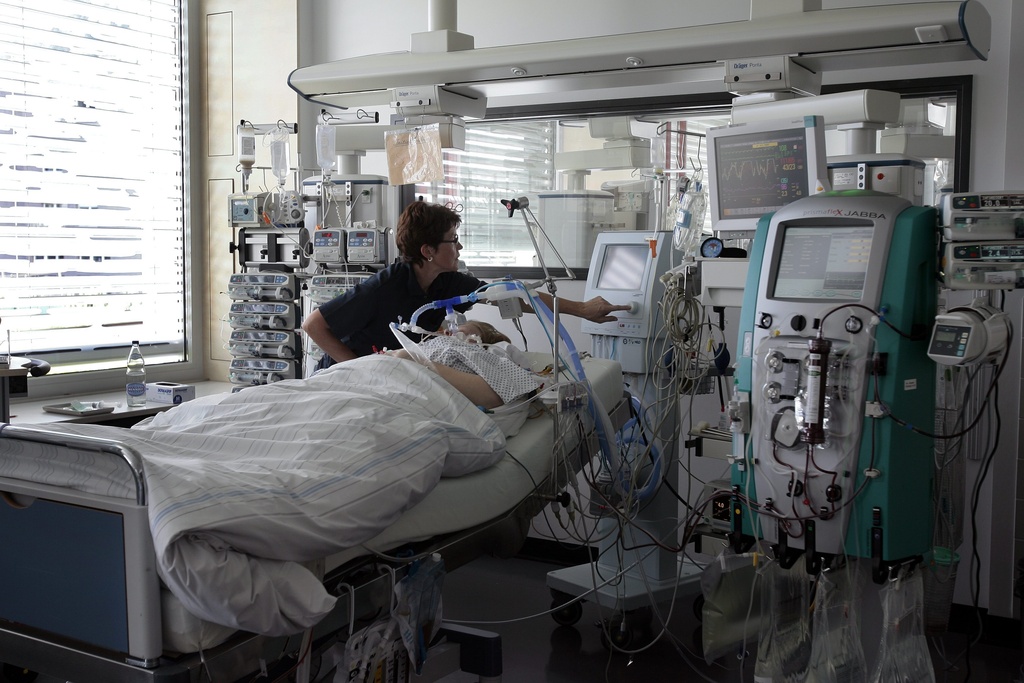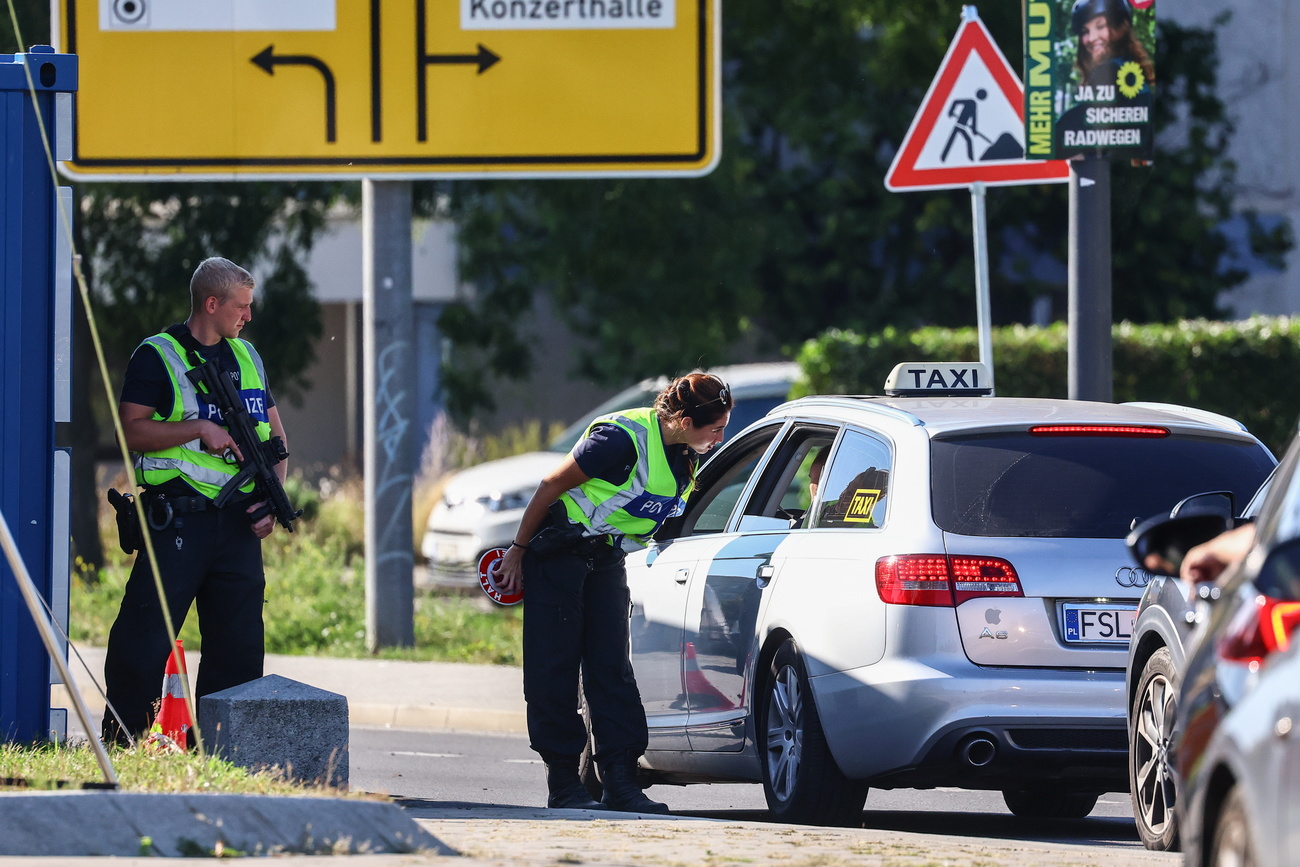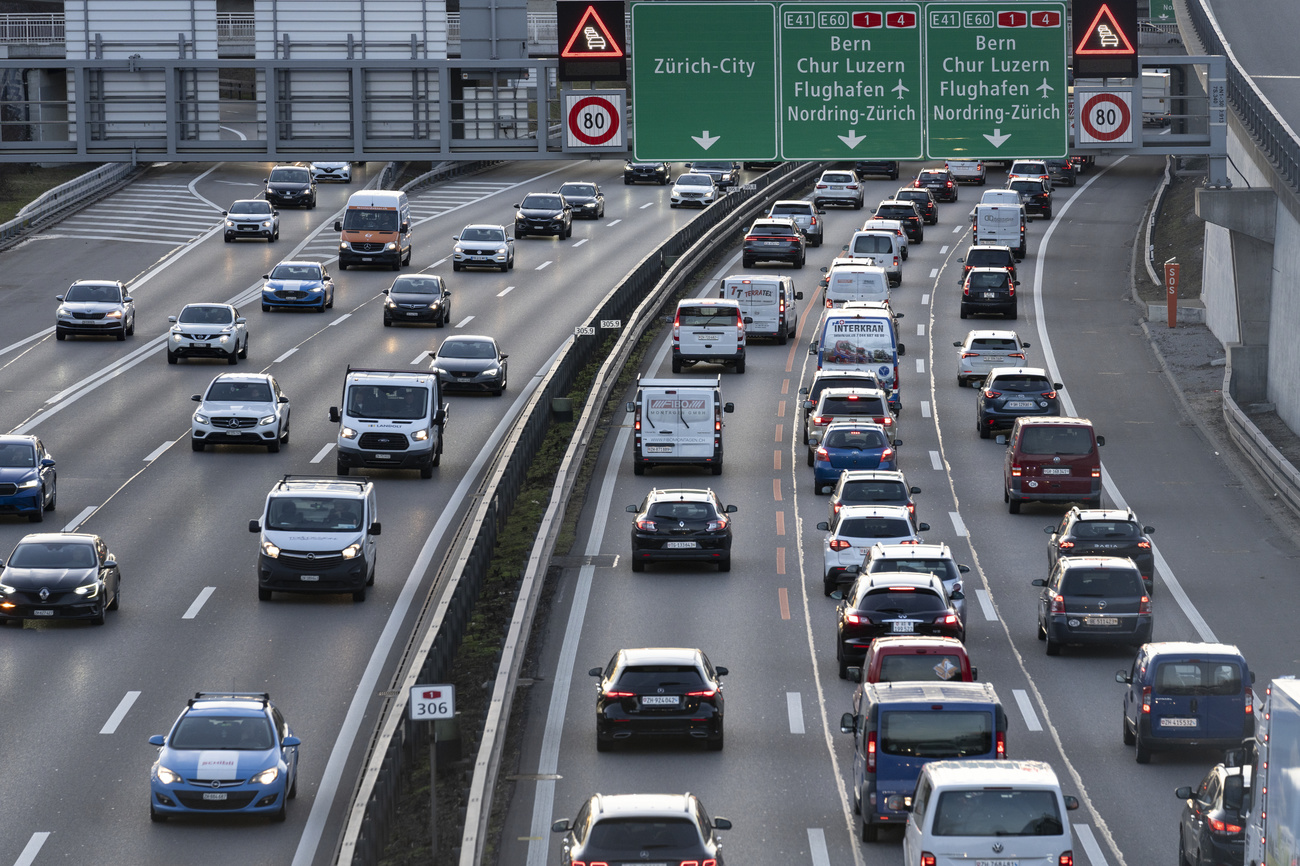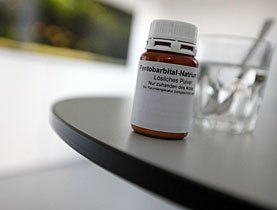Swiss want a say on how to end their lives

Most Swiss are in favour of assisted suicide, and would also support direct active euthanasia – a practice currently outlawed.
But a Zurich University survey into public attitudes on these issues – the first of its kind in the country – also found a lack of support for “death tourism” where foreigners come to Switzerland to end their lives.
The results of the poll of around 1,500 people, which was published by the university’s Criminology Institute on Thursday, come as the government considers proposals to tighten legislation on assisted suicide.
“The main finding is that the Swiss population is rather oriented towards autonomy in end-of-life decisions and rather against strict regulations in this field,” study author Christian Schwarzenegger told swissinfo.ch at the media presentation in Zurich.
Assisted suicide is legal in Switzerland if carried out by a person with no vested interest in the death.
But a close look at the poll’s results reveals nuances, Schwarzenegger said. Assisted suicide for the mentally ill or those tired of life was generally rejected, but it was accepted for those with Alzheimer’s or suffering from multiple illness at the end of their lives.
The survey asked people to rate certain questions on assisted suicide and euthanasia – some based on real examples – from a both a moral and legal point of view. Answers could vary on a scale of one (rejection) to ten (total acceptance).
Surprising result
“A surprising fact was that active forms of euthanasia were accepted by a majority,” Schwarzenegger said.
Passive euthanasia, such as stopping life support, is legal in Switzerland, but direct active euthanasia – where an intervention is made to shorten suffering – is not.
Respondents were, for example, strongly in favour of allowing people to die who could no longer make that decision for themselves, such as a coma patients with no chance of recovery. But this was only if the relatives were in agreement.
This could be explained by people wanting autonomy in end of life issues and the fact that religion has become less important, Schwarzenegger explained.
Nevertheless there is still a strong minority which is very much against it, so any legal changes are likely to be difficult, he said.
Legal debate
The other would introduce severe restrictions, including the need for two doctor’s certificates to judge the patient’s health and state of mind.
Schwarzenegger says people don’t want this and that it would be better to have a surveillance law which would regulate abuse and ensure proper training for those assisting suicides.
“These points are important to the people, not the question of prohibiting generally or expressing moral concerns,” he said.
Justice Minister Eveline Widmer-Schlumpf is in particular trying to limit death tourism, which attracts people from countries including Germany and Britain where assisted suicide is not allowed.
The study found that around two-thirds were against the practice. “That’s probably a concern that a tiny country like Switzerland cannot really solve the problems of all nations and if this continues we would have a kind of a suicide industry,” said Schwarzenegger.
Overall, however, people accepted that organisations such as Dignitas and Exit allow people to die with dignity, even if 41 per cent of those polled could not imagine using their services themselves.
Results in practice
Bernhard Sutter, an Exit spokesman, who was at the study’s presentation, said the survey’s results tallied with what the organisation saw every day, namely support for self-determination and assisted suicide.
The only slight surprise lay in the fact that 86 per cent wanted to see doctors take a more active role in assisted suicide.
“We have been trying for a couple of years now to get doctors to be there, not to do anything, but just to be there and give the patients some sort of security, and unfortunately doctors don’t see this as their job. We have to respect this,” Sutter said.
Like Schwarzenegger, Sutter sees some messages in the results of the survey, especially in people’s unease at overregulation.
“Exit just hopes that the cabinet and especially the justice minister will look closely at this study… and that they will present a solution in Switzerland which is fully supported by the people.”
Isobel Leybold-Johnson in Zurich, swissinfo.ch
Direct active euthanasia is taking specific steps to cause the patient’s death, such as injecting the patient with drugs.
This is usually an overdose of painkillers or sleeping pills.
Indirect active euthanasia is giving the patient a palliative that could, for example, not only ease pain, but also have the effect of leading to death.
Passive euthanasia is usually defined as withdrawing medical treatment with the deliberate intention of causing the patient’s death.
Assisted suicide is when a doctor provides a patient with the means to end his own life; however, a doctor does not administer it.
Switzerland: Assisted suicide and passive euthanasia (“mercy killing”) is legal. Active euthanasia is illegal, but an exception can be made for indirect active euthanasia.
Germany and Italy: Assisted suicide is illegal.
France: A 2005 law allows doctors to withhold treatment with a terminally ill patient’s consent in certain circumstances. Active euthanasia remains illegal.
Netherlands: permits voluntary euthanasia and physician-assisted suicide.
Britain: has the strictest regulations against assisted suicide in Europe. Many Britons come to Switzerland to die.

In compliance with the JTI standards
More: SWI swissinfo.ch certified by the Journalism Trust Initiative













You can find an overview of ongoing debates with our journalists here . Please join us!
If you want to start a conversation about a topic raised in this article or want to report factual errors, email us at english@swissinfo.ch.